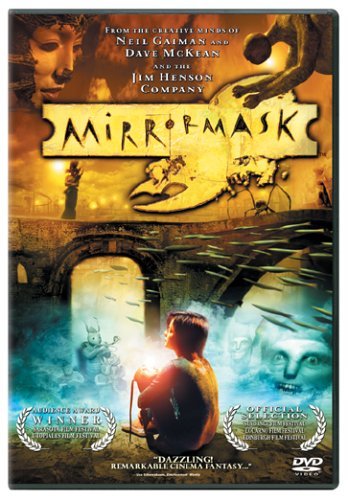 Helena hates being a part of the circus. She can hardly escape the spotlight, though, given that her father owns it. Her frustration causes her to lash out at her mother, Joanna, one night before a performance, and scant moments later Joanna collapses in sudden illness. Feeling responsible for her mother’s collapse, Helena slips into a dream one night and enters a fantasy world filled with strange creatures and wonders beyond the imagination—the Dark Lands.
Helena hates being a part of the circus. She can hardly escape the spotlight, though, given that her father owns it. Her frustration causes her to lash out at her mother, Joanna, one night before a performance, and scant moments later Joanna collapses in sudden illness. Feeling responsible for her mother’s collapse, Helena slips into a dream one night and enters a fantasy world filled with strange creatures and wonders beyond the imagination—the Dark Lands.
In the Dark Lands, Helena learns that a Queen of Light sleeps in a deep slumber, allowing the Queen of Shadows to ravage the land uncontested. Helena meets a fickle companion, Valentine, who teaches her about the lands’ difficult times and hesitantly accompanies Helena as she seeks the mirrormask, a charm that will awake the good queen and restore balance to the land before shadows destroy everything. On her dangerous journey Helena will come face to face with her worst enemy: herself.
The Jim Henson Company teams up with Sony Pictures and fantasy icon Neil Gaiman to create a stunning and truly unique film in MirrorMask. The story itself is somewhat similar to one of Henson’s earlier fantasy films, Labrynth: a young girl must enter a dreamlike world and defeat a powerful evil, all the while learning about herself and restoring balance to her own life.
The acting in MirrorMask is top notch. Stephanie Leonidas plays the emotional Helena with grace, humor, and intelligence while leading the viewer through Helena’s journey. Gina McKee plays not only Joanna, but also the Queen of Light and the Queen of Darkness. The latter reminds me of the White Witch in The Chronicles of Narnia film. She is seductive, convinced of her own righteousness, and deliciously evil. Jason Barry completes the trio of major players by providing the comic relief in Valentine. His nervousness and strong sense of self-preservation offsets Helena’s fearless bravery.
The fantasy world of MirrorMask is a representation of Helena’s own fears and joys. As she meets strange characters (oversized penguin-like birds, talking felines, and police that remind me of, well, flamingos) we are really seeing the vast array of Helena’s personality. This is most obvious in Helena’s evil twin who resides in the fantasy world. Referred to as Anti-Helena in the film’s credits, this twin is the daughter to the Queen of Darkness. Anti-Helena escapes into the real world and switches lives with Helena. Helena can view her dark half anytime she looks through a window, and she sees the troubling possibilities of a life devoid of hope. By looking upon herself in such a way, Helena gains the strength to overcome the shadows within her own heart, choosing love and light over darkness. Also, before Helena can awake the Queen of Light, she is transformed into the image of the evil queen’s daughter. Gaiman masterfully presents this metamorphosis as a representation of Helena embracing her own darkness and rejecting the paralysis it creates.
Furthermore, the denizens of the Dark Lands all wear masks, hiding their true selves from everyone around them. Helena’s unmasked visage demonstrates her emotional nakedness, her unflinching vulnerability to the mysterious world of her own heart. This contrasts greatly with her life in the circus, where the performers don masks to create illusions for the crowd. Without her mask, Helena has nowhere to hide.
The Queen of Darkness, and the brilliantly rendered shadows she unleashes upon the world, further represent Helena’s fears and doubts. As Helena wonders if her mother will survive this unexpected and apparently fatal sickness, the shadows stretch across the land, killing hope and spreading despair. The shadows, or the creatures serving the queen, take many forms. From bats, to large spiders, to a mass of undulated crystalline blackness, they evoke equal parts revulsion and dread.
Besides its heavily symbolic story, MirrorMask is a pure visual marvel. The puppets of Labrynth are replaced with a Picasso-like computer generated world. The strangeness of the world is offset by Helena’s complete acceptance of it. We believe in it because she believes in it. The visuals alone make this movie worth watching. Where else will you see a riddle-obsessed cat with a human face?
Neil Gaiman’s writing genius further elevates the film. The characters, strange as they appear, are knowable and realistic. He establishes Helena’s strained relationship with her family in the first five minutes. The dialogue is direct and emotive. And, thankfully, there are several moments of humor. Through it all is an underlying darkness that permeates much of Gaiman’s work, but this darkness gives clarity to the light and compels Helena on her journey.
All in all, MirroMask is a distinctive, exceptional film. It follows the whims of its own sensibilities and pulls the viewer into a world both strange yet familiar. We can only hope that the trio of Gaiman, McKean, and Henson collaborate again, allow their imaginations to run wild, and give the rest of us a seat by the window to view their fantastic ruminations.




